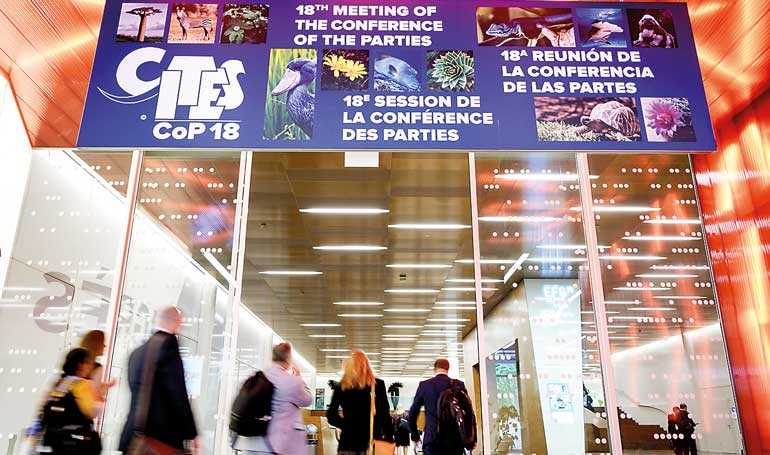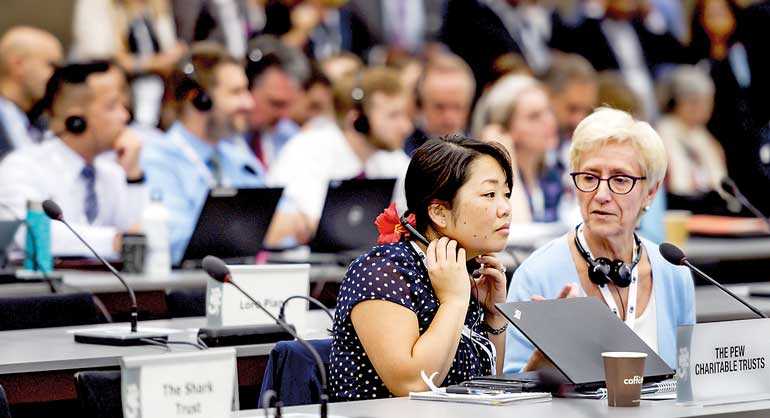Monday Feb 23, 2026
Monday Feb 23, 2026
Tuesday, 20 August 2019 00:00 - - {{hitsCtrl.values.hits}}


GENEVA (AFP): Dozens of European parliamentarians and conservation groups called Sunday on the regulator of global wildlife trade to ban all trophy hunting of rhinos, elephants and other endangered animals.
The Convention on International Trade in Endangered Species (CITES) bans all commercial trade in more than 1,000 species of animals and plants considered to be endangered, listed under its so-called Appendix I.
But in a letter handed to CITES Secretary-General Ivonne Higuero, more than 50 European MPs and an equal number of conservationist groups decried that trophy hunting, which is deemed “non-commercial”, has been exempt from that ban.
“A considerable number of Appendix I species trophies are traded each year, (including) trophies of species listed as extinct in the wild, critically endangered, endangered, vulnerable or near threatened on the IUCN Red List,” the letter said.
The signatories called on CITES to “treat the trade in hunting trophies in the same manner as it treats all other trade in wildlife,” and to “implement an immediate moratorium on the import of all Appendix I species.” They also called for an end to allowing captive farming of lions for hunting trophies.
The letter was delivered during an ongoing global wildlife conference in Geneva tasked with evaluating the CITES rules, but the issue is currently not on the agenda for debate.
The Campaign to Ban Trophy Hunting, which is behind the push to close the CITES “loophole”, said in a statement that “CITES permits have been issued (by) hunters wanting to shoot and take home trophies of some of the world’s most endangered animals.” A wide range of species are coveted by hunters, including elephants, white and black rhinos, giraffes, but also primates like chimpanzees, cheetahs, crocodiles and grey parrots.
Eduardo Goncalves, the founder of the Campaign to Ban Trophy Hunting, told AFP the CITES exemption for trophy hunting was “absolutely inexplicable.” Trophy hunting, he said, is a “global multi-million dollar industry”, which is “clearly commercial”.
The United States, which by far sees the biggest import of hunting trophies, has issued an estimated 200,000 import permits in the past decade, according to a report by the campaign.
That is nine times more than China, which came in second, the report said, warning though that the number of permits issued by Beijing had skyrocketed from just 18 in 2007 to 2,142 a decade later.
The report also noted significant recent increases in trophy hunting by citizens from a range of other countries, including Canada, Belgium, Austria and Russia.
Government-licensed hunting is common across parts of Africa, with tourists paying to shoot a small number of selected animals. The practice is controversial but many wildlife experts accept that hunting can aid long-term conservation.
The countries that sell licences for trophy hunting of endangered species usually argue that the proceeds are used to fund conservation projects and anti-poaching protection.
But critics like Goncalves question this, arguing that the practice is instead leading to the decline of many species.
“The loophole that allows trophy hunters to shoot endangered species must be closed immediately,” he said.